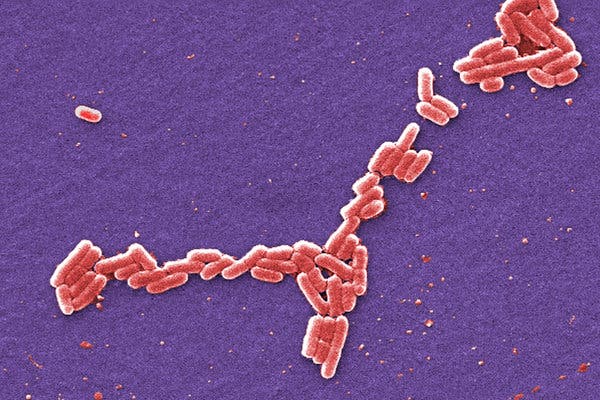A 2-year-old boy died from complications of E. coli and three other children were sickened in cases that officials said were linked to contact with animals at the San Diego County Fair in June.
Four children, ages 2 to 13, visited the fair from June 8 to 15 and exhibited symptoms of Shiga toxin-producing E. coli from June 10 to 16, the County of San Diego Health and Human Services Agency said in a news release on Friday.
The 2-year-old died on June 24 from complications of the bacteria; the other three children who were sickened were not hospitalized. Their conditions were not immediately available on Sunday.
The fair features more than 2,900 animals and numerous activities, including pig races and livestock shows with calves, rabbits, pigeons and goats. The fair shut public access to animals on Saturday, and on Sunday it began removing them from the fairgrounds.
Symptoms of E. coli infection include severe abdominal cramps, watery or bloody diarrhea and vomiting, the agency said. Symptoms may occur with or without fever.
Dr. Robert Glatter, an emergency physician at Lenox Hill Hospital in Manhattan, said the most common form of transmission was the fecal-oral route. In that route, children touch surfaces or animals contaminated with E. coli and then put their hands in their mouths.

CreditJanice Haney Carr/CDC, via Associated Press
“Young children at these zoos come in contact with feces of the animals,” he said on Sunday. “Certainly the animals clean themselves, and obviously contact by virtue of petting is common. We’re looking at calves, cows, goats, sheep as well as deer.”
Dr. Glatter emphasized the importance of hand washing after coming in contact with animals, calling it “paramount.”
“You have to realize, if you’re going to visit one of these zoos, you have to have hand sanitizer, but even better is soap and water,” he said. Hand washing should be done for at least 20 seconds.
Children more commonly contract E. coli from food — eating undercooked ground beef, for instance — than from animals, Dr. Glatter said. The San Diego health agency said it had reinspected food outlets visited by the children and found no links to the cases.
In general, Dr. Glatter said, young children and older adults have a higher risk of developing an invasive infection. “That said, even teens, children who are healthy and young adults may develop a life-threatening infection resulting in anemia and kidney failure,” he said.
The San Diego County Fair, which opened on May 31, shut public access to the animals because it could not pinpoint where exactly the transmissions had occurred, the fair’s information officer, Annie Pierce, said.
“They don’t know whether it was in the livestock barn or the petting zoo,” Ms. Pierce said. “We have a number of different access points to animals.”
While livestock plays a role in the fair experience, so does safety.
Ms. Pierce says signs and washing stations are posted throughout the animal areas. There are also staff members on the grounds reminding visitors to wash their hands, she said. The fair, she added, conducts a daily on-site inspection of animals looking for any signs of illness.

